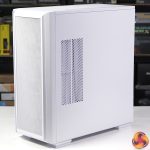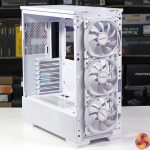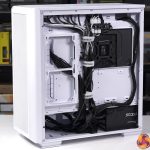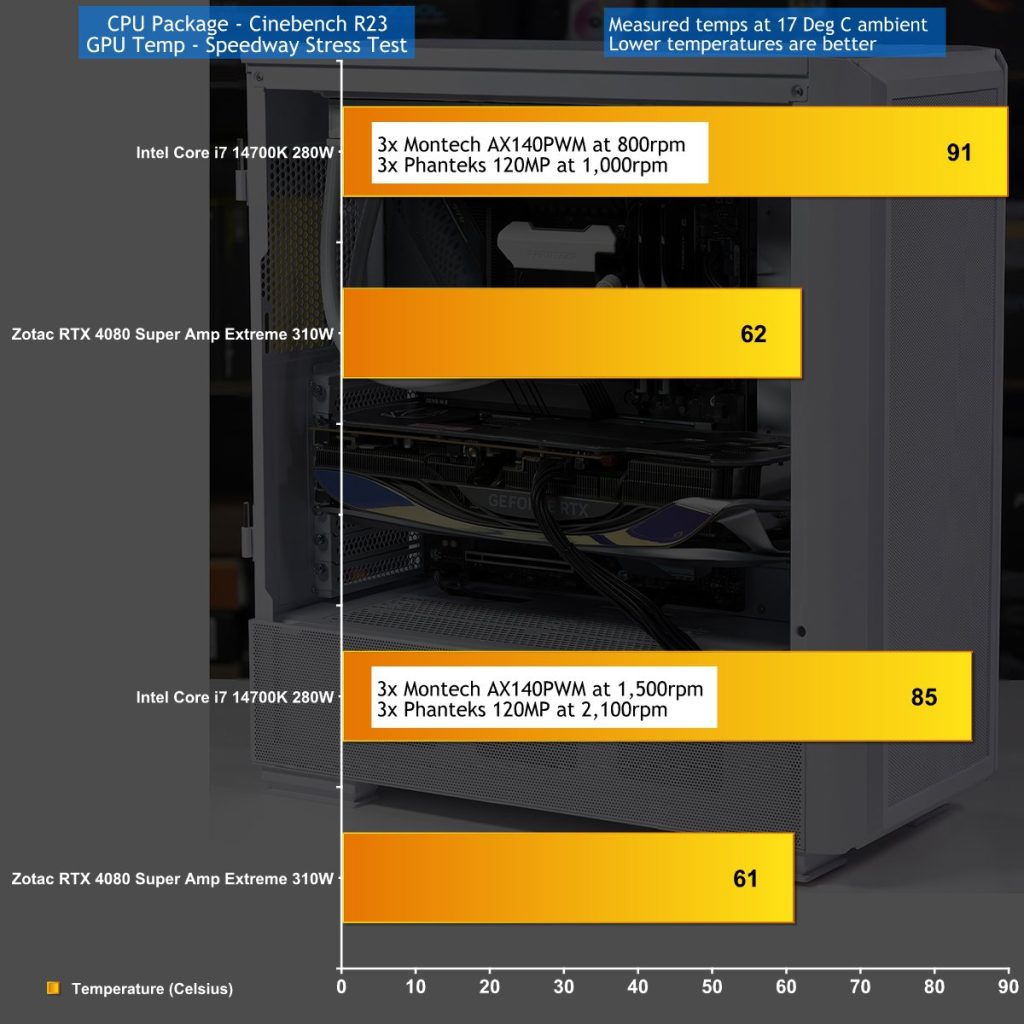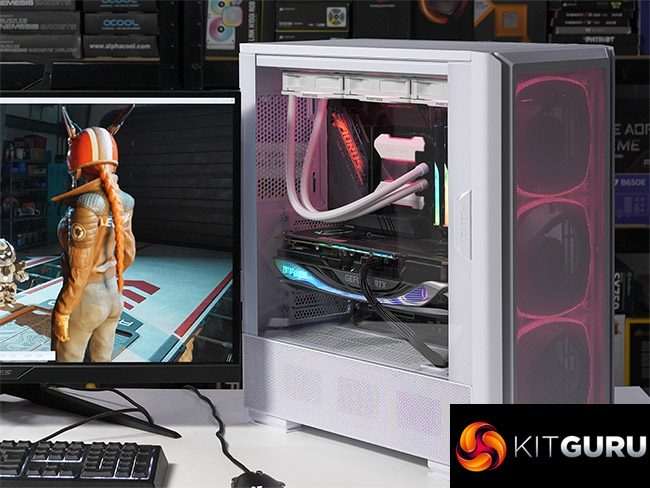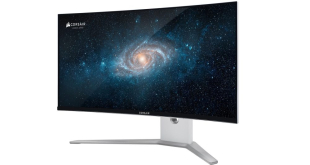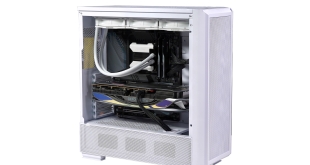
KitGuru reviewed the original Montech Sky Two back in January 2023 and we liked it, a lot. This updated GX version has been tweaked in a number of areas but maintains the same low price and gains a mesh front panel for high airflow that replaces the original glass. Another change is the move from four 120mm ARGB fans to three 140mm ARGB fans… and the end result is superb.
Time stamps
00:00 Start
01:03 The tweaks – cooling support
02:12 Leo's thoughts
02:32 A look outside / accessories
03:27 A closer study
05:33 Leo bleeds and Fan Hub
05:55 Front I/O
06:04 Removeable panel
06:40 It's stripped
07:22 Getting some hardware inside
09:24 Can it fit a monster GPU?
10:16 PC is running
11:27 Thermal and Noise Testing
12:51 Leo's Closing Thoughts
Main features
- The Elegant Airflow-Focused Case
- Innovative Metal Mesh Front Panel
- Premium AX140 ARGB Fans
- Multifunctional True E-ATX Panel
- Unique Lower Side Mesh Design
- Support for 360mm Radiator at the Top and Front
- All-Around Dustproof Design
- Vertical GPU Mounting
- USB TYPE-C Port and 2x USB 3.0 Ports
- Support Up to 11 Fans
Specification:
- Motherboard support: E-ATX, ATX, Micro-ATX, Mini-ITX.
- Power supply support: ATX.
- Expansion slots: 7.
- Included fans: 3x Montech AX140PWM 140mm front intake.
- Fan mounts: 3x 120mm/140mm front, 3x 120/2x 140mm roof, 2x 120mm side, 2x 120mm PSU shroud, 1x 120mm rear.
- Radiator mounts: 280mm/360mm front, 280mm/360mm roof.
- 5.25-inch optical drive bays: None.
- Internal drive bays: 2x 3.5-inch/2.5-inch, 4x 2.5-inch
- Front I/O ports: 1x USB 3.0 Type-A, 1x USB Type-C, audio.
- Dimensions: 500mm H x 460mm D x 215mm W.
Testing
To put this case through its cooling paces we will be using a test system consisting of an Intel Core i7-14700K, RTX 4080 Super and an SSD. This system allows us to produce a substantial amount of heat and effectively test the Montech Sky Two GX ‘s cooling capabilities.
Test System:
- Processor: Intel Core i7-14700K
- CPU Cooler: Phanteks Glacier One 360 MPH
- Motherboard: Gigabyte Z790 Aorus Master X
- Memory: 32GB G.Skill Trident Z5 RGB DDR5-6800
- Graphics card: Zotac RTX 4080 Super 16GB Amp Extreme
- Power supply: Seasonic Focus GX-1000 ATX 3.0
- SSD: Sabrent Rocket 4 Plus M.2 NVMe
- OS: Windows 11
Cooling Performance
Cooling Performance Overview
Our test PC worked well under extreme load, running a combination of Cinebench R23 and Speedway Stress Test and drawing 770W at the wall socket. The good news is that while we saw better results with the fans running at high speed and making loads of noise, we were also able to run the fans at a level that was nearly inaudible and still enjoy good cooling.
Closing Thoughts
The intriguing thing about the Montech Sky Two GX is that Montech has tweaked the Sky Two in a number of modest ways to make it better, and we never saw it coming. The reason is that the original Sky Two was very good and also impressively cheap and our biggest single complaint was that it was hard on sale to find here in the UK.
It turns out that Montech was quite correct and the changes are indeed worth having, so Sky Two is very good and Sky Two GX is excellent. You can install all manner of PC hardware with the minimum of fuss and you can be confident the end result will look smart and clean.
You can buy the Montech Sky Two GX White for £69.98 HERE.
Discuss on our Facebook page HERE.
Pros:
- Loads of mesh for high air flow.
- Low price.
- Supplied with three 140mm ARGB PWM fans.
- Six way PWM/ARGB hub is included.
- Fasteners and accessories are colour co-ordinated with the black or white finish.
Cons:
- No rear fan is included.
- No noise deadening material.
KitGuru says: The Montech Sky Two GX is cheap, stylish and works well.
 KitGuru KitGuru.net – Tech News | Hardware News | Hardware Reviews | IOS | Mobile | Gaming | Graphics Cards
KitGuru KitGuru.net – Tech News | Hardware News | Hardware Reviews | IOS | Mobile | Gaming | Graphics Cards





